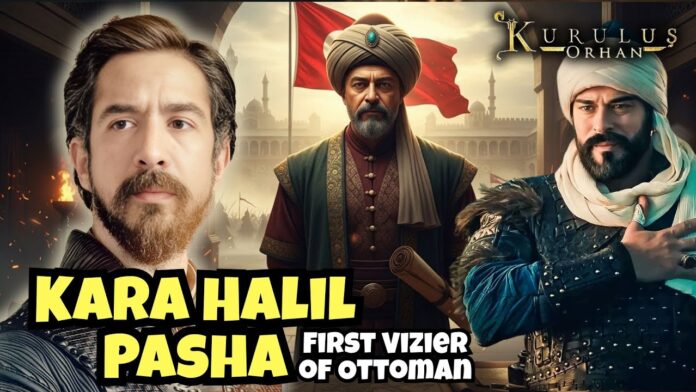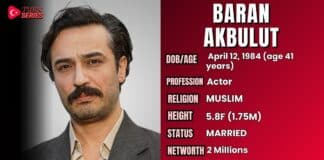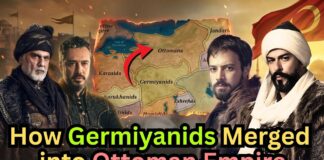His story begins not with a sword drawn… but with a whisper carried through the wooden halls of Bursa. A quiet mind. A brilliant architect of statecraft. A man who reshaped an empire not through conquest — but through justice. In an age when warriors chased glory and princes clashed for thrones, one figure stepped forward with a different creed:“Justice… before power.”His name was Kara Halil — scholar among warriors, conscience of the early Ottoman state, and the quiet force who planted a seed that would one day grow into the Janissaries, one of the most formidable military institutions in world history. Yet destiny has a cruel symmetry. Though Kara Halil rose in honor and influence, his own bloodline — the great Çandarlı family — would later be brought low by the very empire they helped build. Why? And how did Kara Halil’s ideas outlive even the sultans who feared their power? Let’s uncover the truth.
A State on the Edge: The World Kara Halil Entered
The mid-14th century was a dangerous threshold.
The Ottomans were still a young principality — powerful in ambition, fragile in foundation.
Osman Gazi had passed.
Orhan Gazi inherited a realm of warriors, tribes, rivalries, and uncertainty.
The challenges he faced were immense:
-
Enemies at every border
-
Tribal loyalties stronger than state loyalties
-
A military bound by blood, not discipline
-
Territory growing faster than the administration could stabilize it
Orhan needed more than battlefield victories.
He needed someone who could transform a warrior tribe into a functioning state.
From the small village of Çandarlı near İznik, that man emerged.
The Making of a Statesman
Kara Halil was not born into command — he was born into knowledge.
He studied among scholars.
Married into the family of Sheikh Edebali, binding him to the spiritual core of the Osmanoğlu dynasty.
He absorbed law, morality, religious doctrine, and political wisdom.
When news reached Orhan of a judge whose rulings balanced scripture with steel, he summoned him.
Orhan called him:
“The brain of the state.”
From that moment, Kara Halil’s role expanded far beyond that of a simple qadi.
The First Turning Point: Justice Marches With the Army
Kara Halil became a traveling judge — a qadi who accompanied armies into battle.
His tasks were revolutionary:
-
He settled disputes among soldiers
-
He ensured the laws of Allah guided every campaign
-
He infused discipline into armies once driven by tribal emotion
-
He taught warriors that legitimacy came not from blood, but justice
Gradually, soldiers learned:
A sword without law is only a weapon.
A sword with justice becomes a state.
Halil’s Revolutionary Vision: A New Army for a New Empire
In these formative years, the Ottomans faced a core weakness:
Warriors were tied to their tribal chiefs, not to the Sultan.
Loyalty was fluid.
Rebellion was common.
Unity was fragile.
Kara Halil saw the danger.
He understood that no empire could rise on the shifting sands of tribal power.
So he proposed the idea that would change the Ottoman world forever:
A new class of soldiers — loyal to Islam, loyal to the Sultan, and loyal to the state.
>Not to blood.
ass=”yoast-text-mark” data-start=”3730″ data-end=”3733″ />>Not to personal pride.
This vision became the intellectual seed of what later evolved into:
The Devşirme system
and
The Janissaries (Yeniçeri).
The idea was simple yet revolutionary:
-
Take boys from non-Muslim families
-
Educate them
-
Convert them
-
Train them as elite soldiers or administrators
-
Make their loyalty absolute — to the Sultan alone
It was a meritocracy before the word existed.
And it was Kara Halil who first planted the idea.
Murad I would later formalize it — but its soul belonged to Halil.
The Architect of Order
Kara Halil was not simply a military mind.
His reforms touched every corner of early Ottoman governance:
Treasury
Judiciary
Military discipline
State-mosque relations
Administrative law
He established a philosophy that shaped the empire for centuries:
Power is legitimate only when guided by knowledge.
The pen and the sword must walk together.
While Orhan expanded territory,
Halil expanded structure.
He built the machinery that allowed conquests to endure.
The Çandarlı Dynasty: The Pen That Rivaled the Throne
Kara Halil’s descendants became one of the most powerful families in Ottoman history.
His sons, grandsons, and great-grandsons served as:
-
Grand Viziers
-
Judges
-
State architects
-
Advisors to sultans
For nearly 200 years, the Çandarlı family shaped imperial policy, rivaling the Ottoman household in wealth and influence.
But power invites fear.
And influence invites envy.
Their rise set the stage for their dramatic fall.
Was He the First Grand Vizier? The Historical Debate
Many dramatizations depict Kara Halil as the first Grand Vizier.
Historically:
-
Under Orhan Gazi, he served as judge, advisor, and spiritual counselor
-
The formal title “Sadrazam” solidified under Murad I
-
Under Murad, Kara Halil is recognized as the first officially recorded Grand Vizier
In other words:
He shaped the office before the title existed.
The Scholar’s Final Journey
In 1387, during a campaign in Macedonia, in the city of Serrai, Kara Halil passed away.
No conspiracy.
No feud.
Just the quiet truth that even empire-builders return to Allah.
He was brought home to Çandarlı.
There, in the peaceful village where his story began, he was laid to rest — a simple grave for a man whose ideas had built an empire.
Visitors say the air around his tomb is serene.
As if he still whispers:
“Adalet önce gelir.”
Justice comes first.
The Fall of the Çandarlı: Betrayal at the Peak of Power
A century later, Kara Halil’s great-grandson — Çandarlı Halil Pasha the Younger — stood at the gates of Constantinople.
He advised caution.
Negotiation.
Delay.
But Sultan Mehmed II was determined.
He captured the city in 1453.
Then, in a shocking twist, he turned against the family of scholars:
-
Halil Pasha was executed
-
The Çandarlı dynasty’s power shattered
-
Their political legacy ended
Their tomb in İznik was left roofless —
a symbol that not even the mightiest counselors are safe from the winds of empire.
Kara Halil in Kuruluş Orhan: History vs. Drama
In the series Kuruluş Orhan, Kara Halil appears early, guiding the young state.
But historically:
-
Kara Halil was born around 1330
-
Osman Gazi passed before his birth
-
His real influence rose under Orhan and Murad
So why is he shown earlier?
Because dramas often honor legends through symbolic placement.
The character’s early arrival serves as tribute — not chronology.
Even if the timeline bends, the essence remains:
Kara Halil’s ideas shaped the Ottoman world.
And that truth is unshakeable.







